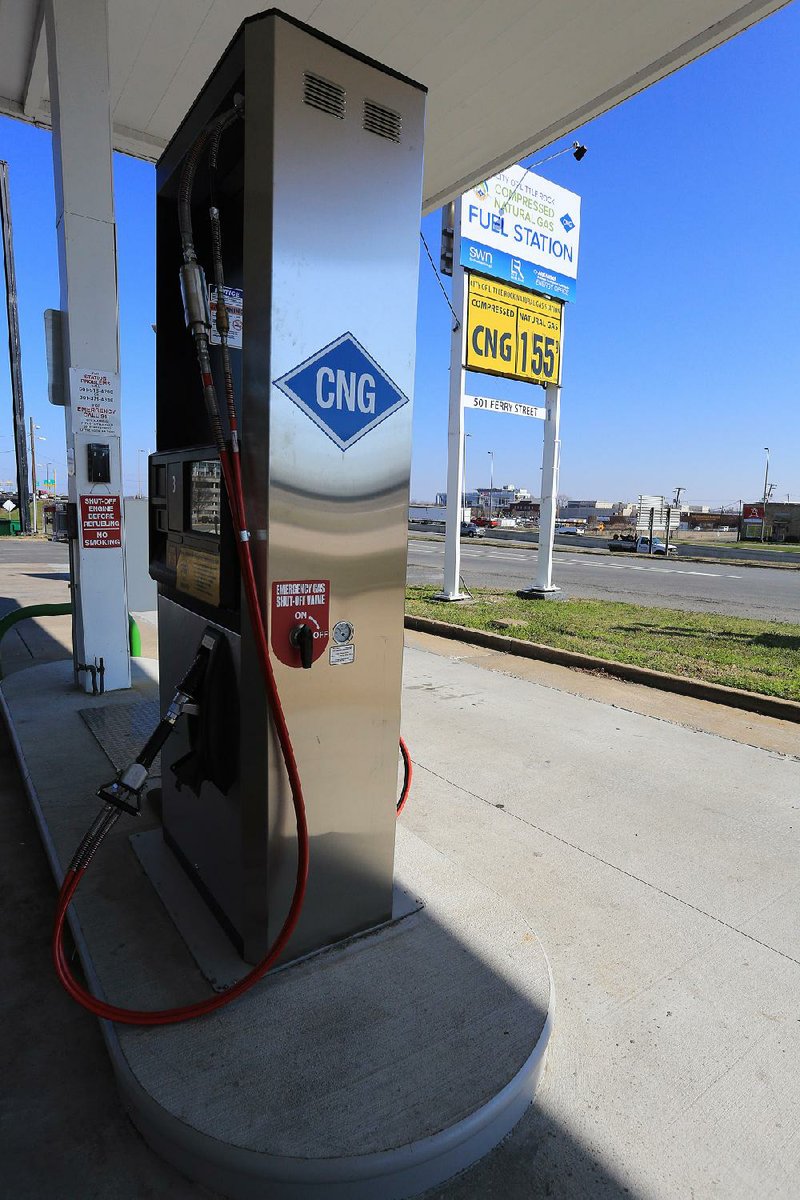The prospect of cheaper gasoline has prompted some companies and cities, at least tentatively, to reconsider plans to convert their fleets of cars, trucks and buses to run on natural gas.
The economic benefit -- and main incentive -- for moving to natural gas has softened with a big drop in oil prices, making alternative fuels less appealing, analysts said.
"There will still be growth, but the adoption curve will not be as robust as some investors had hoped," said Noah Kaye, senior research analyst with Northland Securities Inc.
Analysts said companies and cities committed to converting their fleets to burn natural gas will continue to do so because they have calculated the long-term cost benefits.
However, businesses that are just beginning to look at making a switch will be more hesitant and slower to adopt natural gas, they said.
"While it probably slows [growth], it doesn't stop it," said Rob Brown, equity research analyst with Minneapolis-based Lake Street Capital Markets.
As a result, fewer natural gas fueling stations -- compressed or liquid natural gas -- will be built and companies that support the industry will suffer, Brown said.
Oil prices began falling last summer when a slowing global economy lowered demand and the market became oversupplied. An increase in domestic shale oil production added to the global glut.
Crude prices, which dropped more than 50 percent, have seen some recent gains, but the market remains turbulent. Analysts are unsure if prices have bottomed out.
Prices at the pump have mirrored crude's volatility. Gasoline and diesel fuel have slid to the lowest prices in years, but are now seeing a slight rebound. Adding to the uncertainty in the market is the start of refinery maintenance season and a refinery strike in some states.
The national average price for gasoline Thursday was $2.23 a gallon. The average price for diesel was $2.81 a gallon. In Arkansas, gasoline on Thursday was averaging $2.12 a gallon and diesel $2.64, according to AAA's fuel gauge report.
At those prices, natural gas -- compressed or liquid -- is still less expensive, but the price gap between the fuels has narrowed, along with the economic advantage, analysts said.
"It creates a longer payback period and creates less urgency to shift to natural gas," Brown said, adding that natural gas at the pump is still about 20 percent cheaper than diesel.
Demand for the natural gas engines built by Cummins Inc. has been steady so far this year, said Alberto Alcala, a Cummins manager for the mid-South region.
"I don't believe we view the temporary pricing of diesel and/or gasoline to really be a long term trend that affects natural gas," he said.
There are natural gas stations in North Little Rock, Damascus, Fort Smith, Jonesboro and Conway. And last year, Little Rock opened its compressed natural gas station to the public.
Little Rock's Fleet Services Director Wendell Jones said some of the department's vehicles run on natural gas and that gasoline prices would have to drop even more for the department to question the policy.
He said choosing natural gas is "still a good choice to make."
Small to midsize trucking companies are more likely to delay a switch to natural gas, Brown said. The expense of the initial switch is partly to blame. It costs tens of thousands of dollars to convert motors to run on natural gas or to purchase a new vehicle, said Pavel Molchanov, an analyst with Raymond and James Associates.
"Natural-gas fuels in transportation have historically been slow to get adopted in the U.S. market," he said. "The economics of switching to natural gas fuel has not historically been very appealing -- even with $100 oil."
At current prices, the time it would take companies or cities to reap the cost-savings from natural gas vehicles is not as appealing, Molchanov said.
"You can imagine it's going to be even slower with oil prices down 50 percent," he said, adding, "The engines are still expensive and the economics of the fuel are obviously not as attractive as they were."
SundayMonday Business on 02/15/2015
